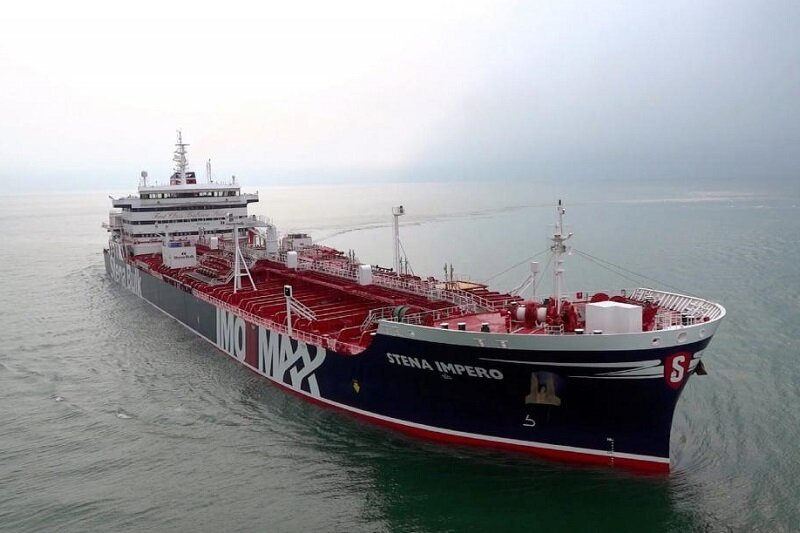Ways for Britain to deal with the seizure of its oil tanker by Iran

An expert on international law in Tehran believes: “The seizure of the British oil tanker for failure to observe the Law of the Sea is perfectly legal and London must go to competent courts instead of political encounters.”
IRGC forces seized the British-flagged Stena Impero oil tanker on Friday for navigating in the wrong direction in the Strait of Hormuz, turning off its positioning system and ignoring warnings by the IR of Iran. In a letter to the UN Security Council, Britain called the Iran move as illegal.
Dr Massoud Akhavanfard, professor of international law, told Persia Digest (PD) in an interview: “The Law of the Sea was drawn up about a hundred years ago. In 1982, the 3rd UN Conference on the Law of the Sea (UNCLOS III) compiled the regulations for the right of navigation in international waters. These pertain to national security and the IR of Iran is also concerned with its national security in seizing the British tanker.”
He added: “According to the articles of the 1982 Law of the Sea, the powers of the host country are broad. Therefore, the Iranian judiciary is also empowered to respond accordingly when the rules of the convention are not observed.”
The professor of international law emphasized: “The British vessel incident is a legal matter and this country’s government must pursue it according to international law rather than with diplomatic and psychological encounters. It must submit all its evidence to competent courts. Turning off the positioning system of a ship endangers navigation routes. Changing direction, creating environmental pollution, and disregarding the warnings issued by the armed forces of Iran in charge of its security provide the Islamic Republic with adequate grounds to seize the oil tanker.”
Akhavanfard reiterated: “The IRGC played its role as part of the ruling system in Iran to seize the tanker and deliver it to the Ports and Maritime Organization of Hormozgan Province. This is not a political issue and the oil tanker is in the hands of the IR of Iran judicial authorities. If Britain intends to respond accordingly, it must begin by contacting this authority in Iran, because they have jurisdiction to investigate the issue according to the 1982 Convention.”
He continued: “Another strategy is to resort to international arbitration. The British government can also go to the International Court of Justice with optional jurisdiction. If its evidence is not satisfactory, this country will be responsible for damages according to the 1982 Convention.”
Source: Tehran Times

